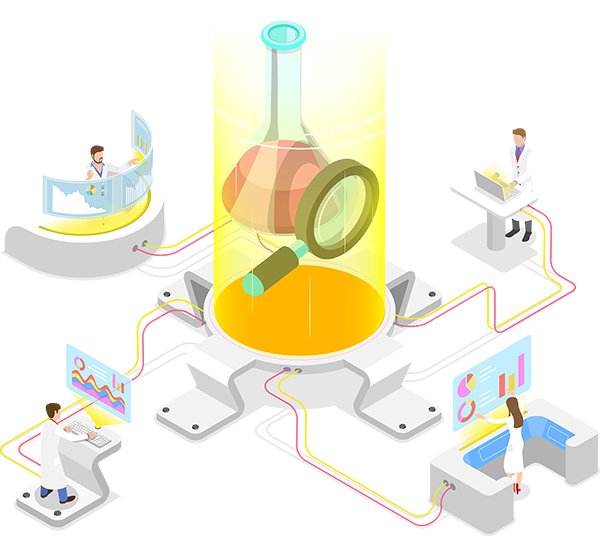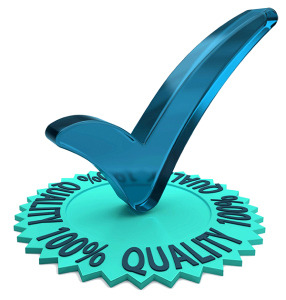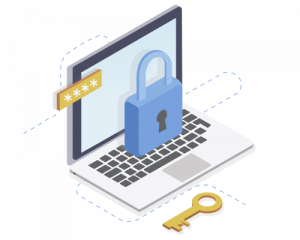Clinical trial protocol translations are increasingly essential in ensuring that the standard operating procedures and the scientific protocols of a trial can be repeated or assessed in any region, regardless of the languages spoken there. These protocol documents must be clear and descriptive, ensuring that they can be followed and evaluated by a regulatory body while also complying with Good Clinical Practice (GCP) guidance. For pharmaceutical companies, biotechnology companies, medical device manufacturers, and academic research institutions, clinical trial protocol translations are necessary for ensuring the integrity of the data collected.
With a global team of 10,000+ linguists and subject matter experts in end-to-end localization solutions for clinical trial documents and life science regulatory translations, CSOFT Health Sciences can support companies with translations for required protocol features, including IRB correspondence translations, Investigator’s Brochures (IBs) translations, and Informed Consent Form (ICF) translations.
End-to-End Clinical Trial Translation Solutions
Clinical trial protocols can be just one of the many documents that may need to be submitted for review by an ethics committee or an institutional review board (IRB) during the phases of a clinical trial. With the development of new regulations such as the EU-CTR, it is more important than ever to meet all the standards regarding clinical trial translations. If you will be submitting a clinical trial application (CTA) in the near future or you currently have a clinical trial underway, CSOFT Health Sciences can support all your translation needs to ensure that essential documents comply with GCP guidance. Our global team of certified linguists and subject matter experts have plenty of experience in phase 0-IV translations for clinical trials and can support you in areas including:
CRO Translation Solutions
Contract Research Organizations (CROs) are essential life sciences companies that provide support through the clinical trial process in areas including management, pharmacovigilance, product development, and other services. As administrators, CROs must be fully aware of all clinical trial protocols and be able to navigate linguistic barriers, especially during multinational clinical trials. Just as the other stakeholders involved in the trial process benefit from the expertise of CROs, CROs can benefit significantly from cost-effective and time-efficient translations that ensure all documentation adheres to regulatory language guidelines and can be parsed in various international settings.
Learn more about our CRO translation solutions.
Biotechnology Translation Solutions
As with other life sciences companies involved in clinical trials, protocols can be crucial documentation for biotech companies seeking to bring new technology to global markets. Ensuring that the trial participants and the data collected adhere to regulations and follow standard operating procedures (SOPs) is essential for high-quality biotech translations. With the global expansion of the biotech industry, all manner of technical documents, including manuals, learning guides, and safety reports, will need to be translated to ensure SOPs are closely followed. Regulatory authorities, including the National Institutes of Health (NIH) and the European Medicines Agency (EMA), have strict linguistic requirements for clinical trials conducted under their guidance and in multiple countries. Biotech is a crucial industry for the discovery and development of potentially lifesaving medical technology, and assisting biotech companies to reach patients around the world is a main focus of our biotechnology translations.
CSOFT Health Sciences supports the biotech industry in areas including:

Pharmaceutical Translation Solutions
With a growing demand for producing and deploying pharmaceutical drug therapies overseas, pharmaceutical translations are essential for any expansion into a new market. A timely and well-translated document crafted in the early stages of a trial, such as a CTP or CTA, can be crucial to ensuring success during future phases. In addition, the global pharmaceutical industry is strictly regulated, with requirements that vary by country. Our services can help establish compliance with GCP guidance across language barriers and protect the safety of all those involved. From translations of drug safety documentation to translations for drug product labels and instructions for use (IFU) translations, CSOFT Health Sciences offers professional localization solutions for the pharmaceutical industry and all stages of the product development cycle.
Learn more about our pharmaceutical translation solutions.
Institutional Review Board (IRB) Correspondence Translation Services
As research in the health science industry expands globally, Institutional Review Board (IRB) correspondence translations ensure that subjects’ human rights are protected in clinical trials worldwide, no matter what language they speak. To access foreign markets, documents, including IRB protocol forms, amendment forms, and progress report forms, must be translated and localized to meet international regulatory standards.
With a global team of in-country linguists and regulatory specialists, CSOFT Health Sciences can help ensure regulatory submission compliance while providing the highest-quality translation and localization solutions across 250+ languages.
Learn more about our IRB correspondence translation services.
Quality Assurance
CSOFT Health Sciences has developed a process for quality assurance to ensure that every medical translation project meets quality standards in a cost-effective and timely manner. We are certified in ISO 17100:2015, ISO 9001:2015, and ISO 13485:2016 to ensure our customized solutions meet global regulatory requirements. Our subject matter expert linguists have at least seven years of experience and work with in-country reviewers and project style guides to meet industry standards. CSOFT offers an online translation management ecosystem for one central location to leverage real-time translation memory and terminology management through our innovative cloud-based technology. Every step of the way, CSOFT has you covered.
Learn more about our quality assurance process.
Data Security
With over 20 years of experience in medical translation, CSOFT Health Sciences understands the importance of data security to our clients, and we take nothing for granted when confidentiality is a concern. Our well-documented and fully traceable information data security policies, checklists, and quality records leverage the best practices of ISO 27001. They are designed to protect everything from source data to translations. From our 24/7/365 data monitoring and advanced encryption to our access control measures, you can be sure that your project data is safe from start to finish.
Learn more about how CSOFT prioritizes data security.

